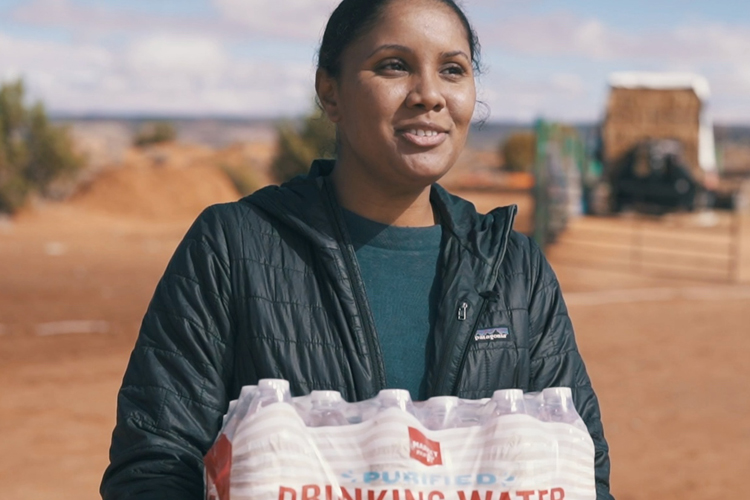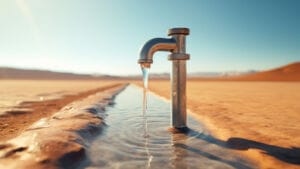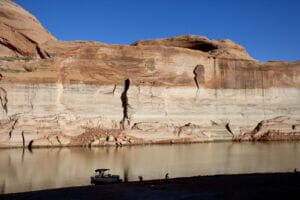With Phoenix being named the least sustainable city globally and being in the Southwest, where droughts have been long-standing, water is known as one of the most valuable resources.
However, elsewhere in Arizona— particularly the Northeast, extending into New Mexico and Utah— water is an issue.
On the Navajo Nation, access to running water is slim and DigDeep has worked to bring change to the 40% of families who have to haul water home.
DigDeep is an organization that brings water to Americans in need, and one of its programs is the Navajo Water Project.
Navajo people pay 67 times more for the water they haul versus piped water, according to research done by DigDeep.
In 2018, DigDeep raised $2.24 million for water and for administration and funding, according to their audited financials.
Additionally, DigDeep invested $1.14 million for water projects and for research and education in 2018, according to their audited financials.
Katie Janss, data research assistant at DigDeep, said that the numbers are hard to pin down because there is little research that has been done and that there tends to be a large margin of error.
“I do a lot of data management, like who has gotten water and who needs water still,” Janss said. She started as an intern and when the position opened up, she went for it and earned the position.
The information that has been used in the past is described in surveys, but those surveys don’t always reach the people on the Navajo Nation and if they do sometimes there isn’t a way to return the surveys, Janss said.
DigDeep and the Navajo Water Project is a human rights organization, Janss said.
The Navajo Water Project means “being able to work back home on the Navajo Nation to help out folks who don’t have that luxury,” Emma Robbins, Navajo Water Project Director said.
“We are a human rights organization that is bringing clean, hot and cold running water to communities in the United States,” Janss said.
“One thing that DigDeep does that I’m really proud of is, we go into areas where other people won’t work and implement projects,” Robbins said. “One of our current projects is Navajo mountain, which is considered to be one of the most furrow parts on the Navajo Nation. Because of that they don’t have waterlines, there is no electrical grid.”
This area has a rocky, dirt road that things like ambulances and school buses can’t travel through, so getting a water truck through has been a challenge, Robbins said.
“It may seem cheesy but when people get water for the first time it’s really nice,” Janss said “It’s very fulfilling to see people turn water on for the first time.”
Robbins has an art background, and infuses art into DigDeep through education.
“Most of the artwork I make is about Indigenous issues, specifically women and treaty rights and within those treaties, water and land,” Robbins said.
“When you can connect with someone through visual language, I think it’s a lot more impactful,” Robbins said.
Robbins says she helps to educate people through visual materials that shows “what water means to Native tribes and how that’s important.”
“It’s not just that you don’t have water, it’s that it becomes part of your life and how you spend your time,” Janss said.
Janss gave an anecdotal example of, “ ‘well after school I have to pick up my kids, and then we have to go to my mother in laws house and fill up buckets and bring it back to the house and heat it up.”
“If you don’t have water, you have to start thinking about things you don’t think about with running water,” Janss said. “There’s just this whole extra element of your life dedicated to that.”
“It’s not just drinking water, washing. All that is very important for your health, but it’s like you don’t feel necessarily your a member of society,” Janss said.
“You feel sort of different, it’s important for not only your health, but for your dignity as a human being.
“You can help by donating money,” Janss said.”You can also follow us on Instagram and Twitter and share everything that you can.”
People can help DigDeep through educating themselves responsibly, Robbins said.
“My most important thing,not only with water issues but also with Indigenous issues overall (or people of color) or any marginalized folk, is it’s important for us to arm ourselves with this knowledge and educate others,” Robbins said.




